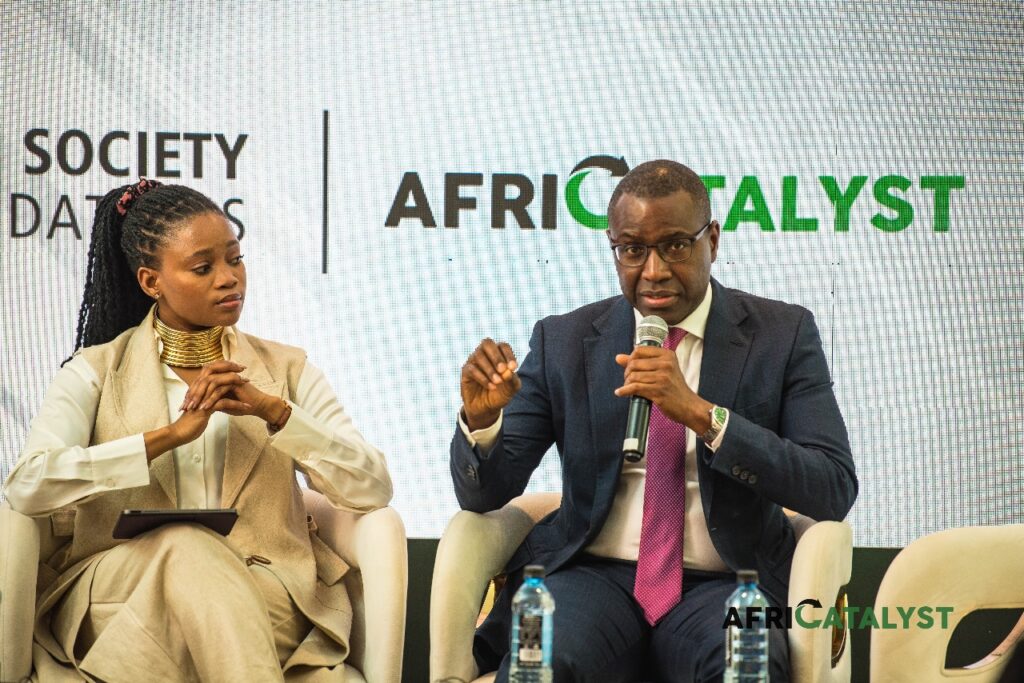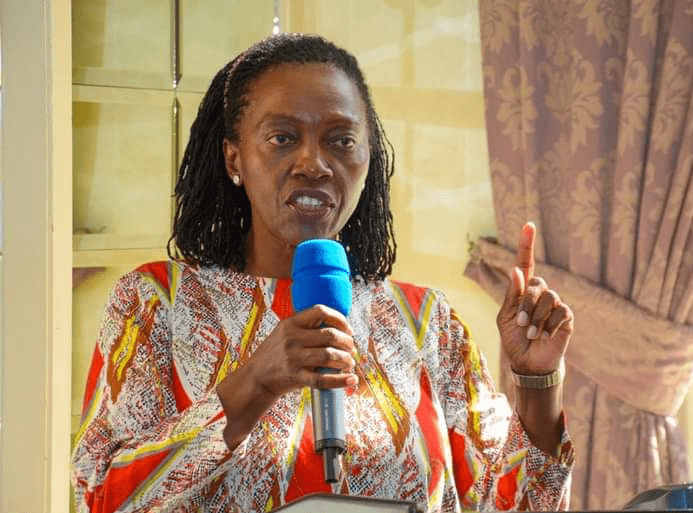Former Presidential candidate Martha Karua has Tuesday urged African nations to improve internal governance, stop illicit financial flow to the west and also reform the international financial system which is skewed against Africa.
“We have to stop the illicit financial flow to the West, these are proceeds of corruption. These funds alone are enough to help us with the monies we are seeking,” she said.
Karua who spoke after a high-level panel discussion under the theme “Unlocking Climate Finance in Africa: The Role of Innovation, Governance, and Partnerships co-hosted by the Open Society Foundations and AfriCatalyst also noted that due to lack of transparency and accountability mechanisms in Africa, the nations are always given a very low rating.
“The rating system is designed in such a way that Africa is given poor ratings and as a result, it attracts more than 10 times the interest as compared to other countries. This is equivalent to borrowing from an international shylock, you can never develop!” She averred.
On his part, Special Envoy of the President of the African Development Bank for the Alliance for Green Infrastructure in Africa Amadou Hott said that African nations need to be more ambitious to unlock funding.
“We should be more realistic. Our partners will not mobilize the money for us. We need to have transparent and accountable governance systems to manage domestic finances as well as engage in domestic resource mobilization,” he said.

Hott in agreement with Karua also read the riot act to African nations by urging them to first fight all leakages in their respective governments in order to increase the loan ratings and hence get fair pricing.
In addition, he also suggested that to increase domestic mobilization, governments should look into compulsory domestic savings of about 15 to 20 per cent of revenue and savings used in the economy.
During the event, Dr. Mahmoud Mohieldin, UN Climate Change High-Level Champion for COP27, called for African countries to explore their rich carbon sinks to attract more financing through carbon markets.
“Africa has bankable projects and investable projects but they need better business environments, better regulatory incentives and better marketing opportunities. The integrated financial framework needs to be encouraged on national levels. Mitigation should come from private equity participation, adaptation should come from concessional finance. Loss and damage should come from grants.”
Also at the event, the Executive Vice President of Finance Administration and Banking Services at the African Export-Import Bank (Afrexim Bank), Denys Denya, underscored the pivotal role that multilateral development institutions play in providing guarantees, attracting external investors and financing initial roll-outs. Denya highlighted the bank’s commitment to collaborate with relevant players to answer the climate question.
“Africa Export-Import Bank has set up $500 million which will help in climate projects. The private sector considers some climate projects as risky. The public sector cannot by itself finance these projects. By providing concessional funding, grant funding and guarantees to investors to look at projects differently,” he said.
The event comes at a time when African nations are increasingly facing extreme weather events. To accelerate the mobilization of climate finance, various calls have been made, including greater use of innovative instruments, reforms of domestic and global environmental governance, and recourse to strategic partnerships with relevant stakeholders.
According to the Climate Policy Initiative, Africa requires approximately $250 billion each year to address its combined climate goals.
However, annual climate flows in Africa for 2022 were only $30 billion, or just 12per cent of the required amount.
To make matters worse, advanced economies are yet to fulfil their pledges to contribute $100 billion annually to assist countries in the Global South to cope with the disproportionate effects of climate change.





